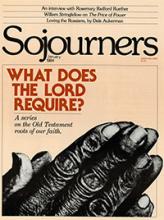The pictures on television had a disorienting familiarity: a Lebanese city and the neighboring Palestinian refugee camp decimated by the surrounding heavy artillery of an occupying army. The bombardment's goals were to drive out the armed forces of the Palestine Liberation Organization (PLO) and ultimately to destroy the PLO as an independent political and military force in the Middle East.
At makeshift press conferences held in abandoned buildings, PLO Chairman Yasser Arafat proclaimed his intention to fight to the finish, but finally negotiated a truce that allowed him and his troops to retreat to various points in North Africa and the Persian Gulf. In the end thousands of homeless Palestinians and Lebanese were left to mourn the dead and try again to pick up the pieces of their lives.
The plot was familiar. But the setting was not Beirut in August, 1982. It was Tripoli, the largest city in northern Lebanon, in the late fall of 1983. The occupying army this time was not Israeli but Syrian, and its local ally was not the Lebanese Phalange but a militarist Palestinian faction that had broken from the PLO last spring. In spite of these differences, the result of the siege of Tripoli was the same as it had been in Beirut: pointless suffering and death and another step away from the possibility of a just peace in the Middle East.
For the Palestinians the lesson was also the same. The Syrian attack again brought home the fact that the Palestinians are a marginalized and outcast people, exploited and despised by all sides in the Middle East conflict.
Read the Full Article

